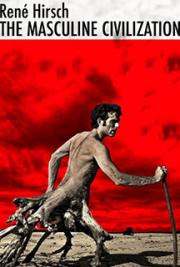CHAPTER XIII
MOODS AND EDUCATION: A REVIEW
In the philosophy of education it is with moods that in our view, we
have most of all to deal. Man, we have a right to say, is a creature
of _feeling_, not of instinct or of reason. It is not the instinct as
a definite reaction to stimulus or as an inner necessity, nor emotion
as a subjective response to this stimulus that is the driving force of
conduct, but rather the more lasting and deeper and more complex
states or processes that we can call by no other name than moods.
Since it is in the moods that the most profound longing or tendency or
desire is represented, we say that moods are the object of chief
concern in a practical philosophy of life. These moods are the
repositories, so to speak, of instinct, impulse, tendency, desire, and
it is therefore by the control and education of moods that the
individual in all his social and in all his personal aspects will be
most fundamentally educable if he is educable at all.
It is as the seat of the will to power, we might say, that the moods
which are the main sources of human energy are to be conceived. The
craving for power, as a generalization of more primitive desires,
comes to take the position of the main motive in life.
The craving for
power is a desire, as we see when we analyze it, that expresses itself
as a longing for ecstatic or intense states of consciousness, and an
abundant life. It is a craving to be possessed by strong desire and
also for the satisfaction of many desires--often vicariously, since
the objects desired may be confused and general. So this motive of
power and the ecstatic states in which it is expressed or realized is
no instinct and no pure emotion. It is an outgrowth and culmination
of instincts, a fusion of them into a new product.
It would be going too far afield to try to summarize here the
psychology of moods or of the motive of power in the individual and in
society, but the main fact needed for the moment seems plain. In this
motive and its expression in feeling and conduct there is a very
general tendency which is the source of many forms of interest and
enthusiasm, of ambition, of the spirit of war, of various kinds of
excitement, and to some extent of morbid and criminal tendencies. The
spirit of war we think of as a summation of the same forces as those
which in other ways appear as the energies behind various enterprises
having quite different objectives. War is an anachronism, we may
believe, a wrong direction taken by the forces of the social life, an
archaic expression now, let us say, of the will to power which might
and ought to have different objectives. In the life and the mood of
the great city we see a very varied expression of the motive of power.
The city life is still a crude life. It satisfies deep desires, but in
it desires for we know not what are aroused. It is indeed as the seat
of eager, unsatisfied desire that the city is best of all
characterized. These desires readily take shape in the city as the
spirit of war and as a craving for excitement of various kinds.
These same forces re-directed or finding different objects and working
under different conditions appear in moral, religious, or aesthetic
forms. In these higher experiences and more progressive moments in
history or in the life of the individual, the forces which at other
levels emerge in different forms and in search of different objects we
may think of as transformed, or given new direction; but to suppose
them annihilated or suppressed is to misunderstand, according to our
view, the whole process of the development of spirit.
Life is not a
process in which instincts are balanced, or in which good motives
stand in sharp contrast to bad motives, or in which an original
selfishness is opposed and gradually overcome by an altruistic
motive. We think rather of very complex processes in which many
desires, gathered into moods, find many forms of expression. There are
prevailing moods--of war and of peace--and these moods are deep
forces, containing both the desires and the sources of energy, so to
speak, out of which our future will be made. The ecstatic states of
the social life, the moods of war and the enthusiasm of the periods of
rapid change are conditions in which energies and purposes are deeply
stirred. These are the moods of _intoxication_, if we wish to describe
them by pointing out one of their chief common characteristics. Peace
is a _reverie_, we may say, in which the purposes and the results
expressed and attained in the more dramatic moments are elaborated and
fulfilled, and in which new impulse is gathered of which the dramatic
moment is itself the expression. But throughout the whole course of
history and through all the life of the individual, the same motives
are at work. Life in its fundamental movements and motives, we should
argue, is both simple and continuous. It is fragmentary and complex
only on its surface.
The whole problem of the nature of education of course resolves
itself, from this point of view, into the question whether progress is
something inherent in nature, or is something controlled by man. Or if
we cannot make so sharp a contrast between nature and will, shall we
say that progress is in the main and in all essential ways one or the
other? Does conscious effort, the having of ideals, exert any profound
effect upon the history of spirit? Does it accelerate, give direction,
provide energy? Is the course of history inevitable or is the making
of it in our hands? We can see what, in a general way, so far as
regards the transformation of the fundamental motives of life, the
order of development has been--how the original and basic desires or
instincts have become merged and confused in the more general desires
and moods, how the motive of power has emerged, finding so varied
expression as we see in the whole movement of art and play in the
world, how out of these motives of art and play more controlled
enthusiasms have arisen. But the part in this movement played by
conscious direction does not thus far appear to have been great. A
movement of and within consciousness it has been, and no mere
biological or physical development, but when we speak of conscious
will or any ideals controlling the course of spirit in essential ways,
we find as yet only a beginning. And yet, this does not indicate that
in the future conscious direction may not be even the greatest factor
in evolution. It is difficult to see how we can _know_
with certainty
that we have such powers; but to refrain from acting as though we had
is also difficult, and indeed impossible.
As a working hypothesis, at least, we seem to be allowed to assume
that much will depend, in the future, upon the extent to which
conscious factors are brought to bear upon the world's progress as a
whole, upon the form in which the world-idea shapes itself, and the
power which is put behind that world idea by the educational forces of
the world. The world appears now to stand balanced at a critical
moment, its future depending upon whether old ideals and primitive
emotions shall prevail, or whether a new spirit which is perhaps after
all but a sense of direction growing out of the old order shall become
the dominating influences. Whether the consciousness of nations shall
be creative and progressive seems to depend now upon the extent to
which the whole life of feeling is influenced by ideas which, although
they are products, as we say, of the primitive biological processes
that underlie history, are also outside these processes, as definite
purposes, desires, visions, ideals. At least we seem to depend now
upon these superior influences for many things that we regard as
good--for the rate at which we shall make progress, and for the
certainty of making progress at all. Upon these conscious factors
directing and shaping the plastic forces represented in the moods of
our time, we shall assume, the course of history will depend.
We are no longer to be satisfied with _natural progress_. We have gone
too far and too long, let us say, upon a rising tide of biological
forces, and we have not yet realized what conscious evolution might
mean. We have been too well satisfied with the physical resources and
the psychic energies that seemed sufficient for the need of the day. A
world in which democracy is going to prevail can no longer live in
this way. It will not grow of itself in a state of nature. Its
principle, on the other hand, forbids program-making after the manner
of autocratic societies. Democracy, as the form in which the youthful
and exuberant spirit of the world now makes ready for creating the
next stage of civilization, will advance, we may suppose, neither by
nature nor by force. It is the main work of our day to find for
ourselves a new and better mode of shaping history, by bringing to
bear upon all the social motives of the day the best and strongest
influences. Our whole situation is from this point of view an
educational problem. Probably there was never a greater need than that
the democratic forces of the world now have great leadership. It is a
practical world, a world of politics and of business, but it is also a
world exceedingly sensitive to many influences, good and bad, a world
in which, we may think, nothing great and permanent can be
accomplished unless moral, religious and æsthetic influences prevail
and give to our civilization its new dominant.
It will depend upon these conscious forces--upon our efforts to make
progress and upon the clarity of our vision--it must depend upon
these--whether in the future our great war shall be looked back upon
as after all an upheaval of primitive forces and a debauch of
instincts, or as the beginning of a new life. It is for us to create
out of the war the foundation of a better order. We cannot go back to
the old régime. Our enthusiasms will either be directed to better
things, or the emotions aroused by the war will run riot and finally
settle into habits on a low plane, and destroy, it may be, all that
civilization has thus far gained. All things seem possible, in this
critical time.
Stated in the broadest possible way, the educational problem of our
times seems plain. We must lay hold upon and set to work for a higher
civilization the motives and purposes that in the past have worked
obstructively, and now destructively. A great work of our day is to
understand these motives and forces that were the main factors in the
cause of the war, and make them count for progress. That they are
powerful forces we can have no doubt. They are not for that reason
hard to direct, at least not necessarily so. We see that, whether in
war or in peace, we need greater power in the social life. Life must
be made to satisfy the longing for intensity and abundance of
experience. But this abundant life that we now seek cannot be
something merely subjective and emotional. To see this is indeed the
crucial test. This subjective life cannot remain an ideal in a world
determined to become democratic, to make progress, to be a practical
and well-coördinated world. Abundant life must now be sought in the
performance of functions which express themselves in practical aims
and consequences. The prevailing mood and form of this life may still
be dramatic, and indeed it must be dramatic. The possession of this
quality is the test of its power.
Such views, of course, imply that our practical educational problem is
something very different from that of finding an _outlet for
emotions_. For example, to search for a substitute for war now is a
superficial way of looking at the problem of the control and education
of the social consciousness. We think of the motives that have caused
the war, according to these older views, as bad instincts or evil
emotions, as we are usually asked to think of the motives behind
intemperance, and the habits of gambling and the like.
By some form of
katharsis we hope to drain off these emotions (unless we undertake
merely to suppress them). This we say is a narrow view of the problem,
merely because the motives that underlie the conduct we deplore are
not _bad instincts_, or indeed instincts as such at all, but rather
feelings or moods which are variable in their expression, complex, and
educable. They have no definite object of which they are in search, so
that we may think the only way to thwart them is to find some object
closely resembling theirs which may surreptitiously be substituted for
them. These motives are indeed broad and general. We must do with them
what education must do all along the line, find the fundamental
desires they contain and utilize the energies expressed in these
desires in the performance of functions--these functions being the
purposes most fundamentally at work in the social life or representing
our social ideals.
Such an ideal of education invites us to work beneath the political
and all formal, institutional and merely practical affairs and to lay
our foundations in the depths of human nature. There we shall begin to
establish or to lay hold upon continuity, and there bring together the
fragments of purpose which we find in the life we seek to direct. This
which one can so easily say in a sentence is, of course, the whole
problem of education. These things are what we must work for in
establishing and sustaining our democracy, for we must, to this end,
make forces work together, instead of separately and antagonistically
as they themselves tend to do. It is the same problem, at heart, in
the education of the individual--to harmonize desires, and to create a
higher synthesis of energies than nature itself will yield. And in the
new and wider field of international life that opens up before us, the
problem is still educational. The educational forces of the world must
begin now the gigantic task of national character building. The spirit
of the nations, the divergent motives of power, of glory, of comfort
and pleasure-seeking that are said to dominate nations, the justice,
and loyalty, and steadfastness and truth which at least they put upon
their banners and into their songs must be made to work together in a
practical and progressive world, or to make such a world possible.
The Germans like to interpret the tricolor of their flag as signifying
_Durch Nacht und Blut zur Licht_. But plainly the night and bloodshed
do not always lead to light, and of themselves they cannot. Nor, must
we think, need the world continue always to seek its way toward light
only through the blackness and guilt of wars and revolutions. In some
distant day, let us think, justice and morality will have been bred
into all the social life, and life will be lived more in the spirit of
art and religion. Then they will see that, under the influence of
these forces we call now educational, an old order will have given way
to a new by imperceptible degrees, and it will be no longer through
darkness and bloodshed that the world must make its way to light, but
need only go through light to greater light.
BIBLIOGRAPHY
The following list contains the titles of a few books and articles
that have contributed data or suggestions to this study.
It is neither
complete nor systematic. Numbers in the text refer to this list.
1. A.W. Small, General Sociology.
2. C. Andler, Frightfulness in Theory and Practice.
3. W.E. Walling, The Sociologists and the War.
4. H. Hauser, Germany's Commercial Grip of the World.
5. J.F. O'Ryan and W.D.A. Anderson, The Modern Army in Action.
6. R. Dunn, Five Fronts.
7. Mrs. Henry Hobhouse, I Appeal Unto Cæsar.
8. F.H. Giddings, The Western Hemisphere in the World of
To-morrow.
9. O.H. Kahn, Prussianized Germany.
10. C. Mitchell, Evolution, and the War.
11. A. Wehrmann, Deutsche Aufsaetze Ueber den Weltkrieg, etc.
12. J.P. Bang, Hurrah and Hallelujah.
13. E. Boutroux, Philosophy and the War.
14. M.A. Morrison, Sidelights on Germany.
15. R. Lehmann, Was Ist Deutsch? (In Vom kommenden Frieden.)
16. Durkheim, Germany Over All.
17. H. Bergson, The Meaning of the War.
18. J. Burnet, Higher Education and the War.
19. C.L. Drawbridge, The War and Religious Ideals.
20. M. Dide, Les Emotions et la Guerre.
21. D.G. Brinton, The Basis of Social Relations.
22. Ernesta R. Bullitt, An Uncensored Diary from the Central
Empires.
23. Hundert Briefe Aus dem Felde.
24. Mrs. Denis O'Sullivan, Harry Butters "An American Citizen."
25. W. Irwin, Men, Women and War.
26. G. Roethe, Von Deutscher Art and Kultur.
27. J.W. Gerard, My Four Years in Germany.
28. W.R. Roberts, Patriotic Poetry: Greek and English.
29. Schmitz, Das Wirkliche Deutschland.
30. Redier, Comrades in Courage.
31. Igglesden, Out There.
32. Madame Lucy Hoesch-Ernst, Patriotismus und Patriotitis.
33. W.E. Ritter, War, Science and Civilization.
34. Hobhouse, The World in Conflict.
35. G.S. Fullerton, Germany of To-day.
36. A. Pinchot, War and the King Trust.
37. J.T. MacCurdy, The Psychology of War.
38. E.L. Fox, Behind the Scenes in Warring Germany.
39. J. Chapman, Deutschland Ueber Alles.
40. G. Blondel, Les Embarras de l'Allemagne.
41. P. Bigelow, The German Emperor and His Eastern Neighbors.
42. G. Le Bon, The Psychology of the Great War.
43. T.A. Cook, Kultur and Catastrophe.
44. Cheradame, The German Plot Unmasked.
45. J.B. Booth, The Gentle Cultured German.
46. J. Claes, The German Mole.
47. T.F.A. Smith, The Soul of Germany.
48. W.N. Willis, What Germany Wants.
49. Hintze, The Meaning of the War. (Modern Germany.) 50. Zitelmann, The War and International Law. (Modern Germany.)
51. Schmoller, Origin and Nature of German Institutions. (Modern
Germany.)
52. Hintze, Germany and the World Powers. (Modern Germany.)
53. F. Meinecke, Kultur Policy of Power and Militarism.
(Modern
Germany.)
54. O.G. Villard, Germany Embattled.
55. E.J. Dillon, Ourselves and Germany.
56. R. MacFall, Germany at Bay.
57. C. Tower, Changing Germany.
58. W.R. Thayer, Germany vs. Civilization.
59. Lamprecht, What Is History?
60. B.T. Curtin, The Land of Deepening Shadows.
61. P. Bigelow, Prussian Memories.
62. E. Troeltsch, The Spirit of German Kultur. (Modern Germany.)
63. A. Guilland, Modern Germany and Her Historians.
64. T.F.A. Smith, What Germany Thinks.
65. Von Bülow, Imperial Germany.
66. J.A. Cramb, Germany and England.
67. G. Bourdon, The German Enigma.
68. P. Collier, Germany and Germans.
69. H.B. Swope, Inside the German Empire.
70. Sumner, Folkways.
71. J. Novicow, Les Luttes Entre Sociétes Humaines en Leur Phases
Successives.
72. H. Gibson, A Journal from Our Legation in Belgium.
73. A.M. Pooley, Japan at the Cross-Roads.
74. F.J. Adkins, The War.
75. H.E. Powers, The Things Men Fight For.
76. J. M'Cabe, The Soul of Europe.
77. Scheler, Der Genius des Krieges und der Deutsche Krieg.
78. S. Freud, Reflections on War and Death.
79. Nicolai, Die Biologie des Krieges.
80. P. Gibbs, The Soul of the War.
81. T. Roosevelt, America and the World War.
82. W. Trotter, Instincts of the Herd in Peace and War.
83. J. Novicow, Der Krieg und Seine Angeblichen Wohltaten.
84. G.R.S. Taylor, The Psychology of the Great War.
85. W. Wundt, Die Nationen und Ihre Philosophie.
86. Nusbaum, Der Krieg im Lichte der Biologie.
87. Edith Wharton, Fighting France.
88. Crile, A Mechanistic View of War and Peace.
89. Eleanor M. Sidgwick, The Morality of Strife in Relation to the
War. (The International Crisis.)
90. G. Murray, Herd Instinct and the War. (The International
Crisis.)
91. Bosanquet, Patriotism in the Perfect State. (The International
Crisis.)
92. A.G. Bradley, International Morality. (The International
Crisis.)
93. L.P. Jacks, The Changing Mind of a Nation at War.
(The
International Crisis.)
94. G.F. Stout, War and Hatred. (The International Crisis.)
95. E. Mach, What Germany Wants.
96. F. Peil, Der Weltkrieg.
97. T. Veblen, The Nature of Peace.
98. Hirschfeld, Kriegsbiologisches.
99. H.A. Gibbons, The New Map of Europe.
100. F.C. Howe, Why War?
INDEX
Æsthetic, elements in war, 70-77;
in education, 230, 315-318
Aggressive instinct, 40-45
American life, 248;
mores, 221
Anger, 14
Autocracy and democracy, 104
Bergson, 36, 101, 110
Biological principles, 3 ff.
Bourdon, 90, 129
Boutroux, 55, 101, 236







